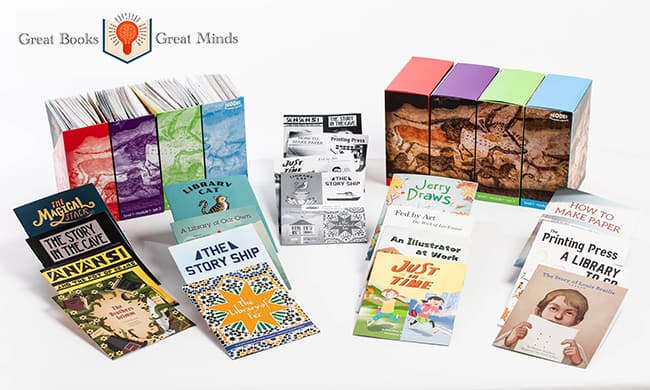Popular Blog BD
The world of literature is a vast and enchanting realm where great minds and great books converge, offering readers an exploration of the human experience, the intricacies of the human mind, and the vast spectrum of emotions and thoughts that define our existence. From the ancient epics to contemporary masterpieces, literature has served as a mirror reflecting society, a lens magnifying human nature, and a bridge connecting diverse cultures and epochs. This literary exploration delves into the contributions of some of the greatest minds and their seminal works, illustrating how literature continues to shape and enrich our lives.
At the dawn of Western literature, we find Homer, whose epic poems “The Iliad” and “The Odyssey” have stood the test of time. These ancient Greek epics are not merely tales of war and adventure; they are profound explorations of heroism, honor, and the human condition. Homer’s works laid the foundation for Western literature, influencing countless generations of writers and thinkers. The characters of Achilles, Odysseus, and Hector, with their complex motivations and vulnerabilities, remain timeless symbols of human strength and frailty.
Moving forward to the classical era, we encounter the works of Sophocles and Euripides, whose tragedies delve into the darker aspects of human nature and the inevitability of fate. Sophocles’ “Oedipus Rex” and Euripides’ “Medea” explore themes of destiny, guilt, and retribution, posing questions that resonate with readers to this day. These playwrights used the stage as a platform to dissect the moral and ethical dilemmas of their time, offering insights into the human psyche that are as relevant now as they were millennia ago.
The Renaissance period heralded a literary explosion with the works of William Shakespeare, whose plays and sonnets have become cornerstones of English literature. Shakespeare’s genius lies in his unparalleled ability to capture the full spectrum of human emotions and experiences. Whether it is the tragic descent of Macbeth into madness and ambition, the intricate interplay of love and jealousy in “Othello,” or the existential musings of Hamlet, Shakespeare’s characters and their struggles speak to the core of what it means to be human. His influence permeates literature, theater, and even popular culture, underscoring the enduring power of his words.
As the Enlightenment swept through Europe, literature became a vehicle for social and political commentary. Voltaire’s “Candide” and Jonathan Swift’s “Gulliver’s Travels” satirized the follies and vices of their societies, using wit and irony to critique authority and advocate for reason and progress. These works exemplify the Enlightenment’s emphasis on questioning tradition and championing intellectual freedom, setting the stage for the modern novel.
The 19th century witnessed the rise of the novel as a dominant literary form, with authors like Jane Austen, Charles Dickens, and Leo Tolstoy crafting narratives that captured the complexities of their times. Austen’s keen observations of social mores and the subtleties of human relationships in works like “Pride and Prejudice” offer timeless insights into the dynamics of love, class, and society. Dickens’ vivid portrayals of Victorian England’s struggles and injustices in novels such as “Great Expectations” and “Bleak House” highlight his commitment to social reform and his deep empathy for the underprivileged. Tolstoy’s epic novels, “War and Peace” and “Anna Karenina,” explore the vast tapestry of Russian society, delving into themes of love, betrayal, and redemption with unparalleled depth and realism.
The 20th century brought forth a wave of modernist and postmodernist experimentation, as writers sought new ways to capture the fragmented, rapidly changing world around them. James Joyce’s “Ulysses” revolutionized the novel with its stream-of-consciousness technique and richly layered narrative, pushing the boundaries of language and form. Virginia Woolf’s “To the Lighthouse” and “Mrs. Dalloway” similarly broke new ground with their introspective, character-driven explorations of time, memory, and identity. These modernist masterpieces reflect the profound shifts in perception and understanding that characterized the early 20th century.
In the latter half of the 20th century and into the 21st, literature has continued to evolve, embracing diverse voices and perspectives. Toni Morrison’s “Beloved” confronts the brutal legacy of slavery in America, blending historical reality with magical realism to create a powerful, haunting narrative. Gabriel Garcia Marquez’s “One Hundred Years of Solitude” similarly weaves magical realism into the fabric of Latin American history and culture, crafting a story that is both universal and uniquely specific. Contemporary authors like Haruki Murakami, Chimamanda Ngozi Adichie, and Margaret Atwood continue to push the boundaries of fiction, exploring themes of identity, power, and resistance in an increasingly interconnected world.
Literature, in its myriad forms, remains a testament to the enduring power of the written word. It offers a space for reflection, empathy, and understanding, allowing us to explore the depths of the human experience through the eyes of great minds. As we navigate the complexities of the modern world, these great books serve as both guides and companions, illuminating the path with their timeless wisdom and insight. Through the pages of these works, we embark on a literary journey that enriches our lives, challenges our perceptions, and connects us to the broader tapestry of human history and culture.

